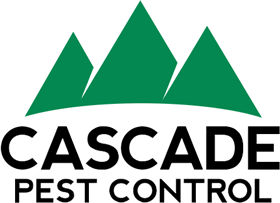Author: Kurt Treftz, Cascade Pest Control
Rats are an unwelcome but common sight in the Seattle area, and not just in urban settings. They forage for food and search for shelter, which unfortunately means that local homes are a prime target for rat infestations.
We’ve dealt with many rat infestations over our decades of experience at Cascade Pest Control, and there are some common factors that attract rats to area homes and businesses.
Making your home a less attractive target for rodents is a key step in rat control, so let’s take a closer look at the various factors that may attract rats to your home.
How Food, Water, and Shelter Attract Rats to Your Home
Common Sources of Food and Water for Rats
Rats are not picky eaters, and they will look for nearly any type of unsecured food to find a meal. Food around the home – both indoors and outside – can be a major attraction for nearby rodents. Rats will look for food in unsecured garbage areas, around bird feeders, in basements, bags of pet food, uneaten food in outdoor pet bowls, and even in cupboards. If they know that your home is an easy source of food, they’re very likely to keep coming back. Rats also need water, so sources of standing water outdoors like birdbaths can attract rodent activity. Keeping all food in sealed containers and making sure that your garbage is secured means rats will have fewer sources of food to target around your home.
Rodents Search for Shelter in Structures
Along with seeking food, rodents enter homes because they are looking for a safe place to shelter and create a nest. Rats tend to favor out-of-the-way places in the home, from inside walls to garages, crawlspaces, and attics. In crawlspaces, attics, or other spaces, rats will destroy your insulation while nesting in it.
If there is clutter around where they can create a nest, ideally in a place with minimal human activity, rats will often take advantage of the opportunity for easy shelter. Keep storage areas clean and de-cluttered, while making sure to inspect those areas regularly for signs of rodent activity.
Easy Entrance Points Create Rat Infestation Opportunities
Rodents are creatures of opportunity, searching for any crack, crevice, or opening that will allow them to reach the inside of your home. While an abundance of entry points doesn’t attract rats in quite the same way as unsecured food, it does make it so much easier for them to get established once they have identified your home as a target.
The process of rodent exclusion – a key step in both mouse control and rat control – is how your pest control expert makes sure that rodents will not have an easy time making it into your home. Exclusion is all about sealing entry points, like vents, doors, screens, utility lines, roof eaves, and more, while eliminating common sources of sustenance for rodents around the home.
A Familiar Setting May Encourage Rodent Re-infestation
In addition to food, shelter, and opportunity, rodents will often look for nests left behind in previous infestations. If the infested area is not properly sanitized after the infestation has been eliminated, a new group of rodents may be drawn to the familiar scents and setting of a prior rodent nest. Professional sanitation after an infestation is an important step in rat control for health reasons, and it can also help keep a new batch of rodents from setting up shop in your home.
Professional Rat Control
Taking steps to make your home less attractive to rats is a great place to start, but the process of safely dealing with a rat infestation is best left to the pros. In addition to causing damage to your structure, rats and other rodents can be carriers of harmful diseases, while creating serious sanitation issues around your home or business.
Effectively dealing with a rat infestation requires both professional rat control, and rodent exclusion to help keep these unwelcome pests from re-infesting your home. Our team at Cascade Pest Control is here to help with all of your rat control and mouse control needs in the Seattle/Puget Sound area.
